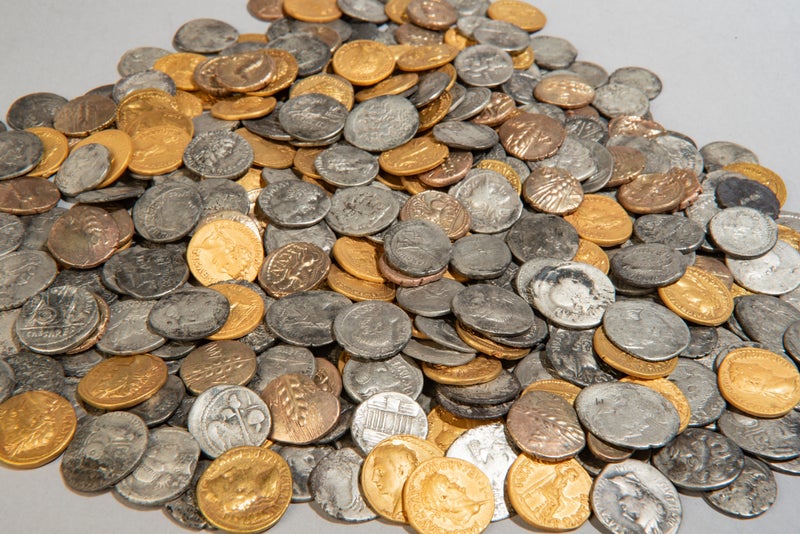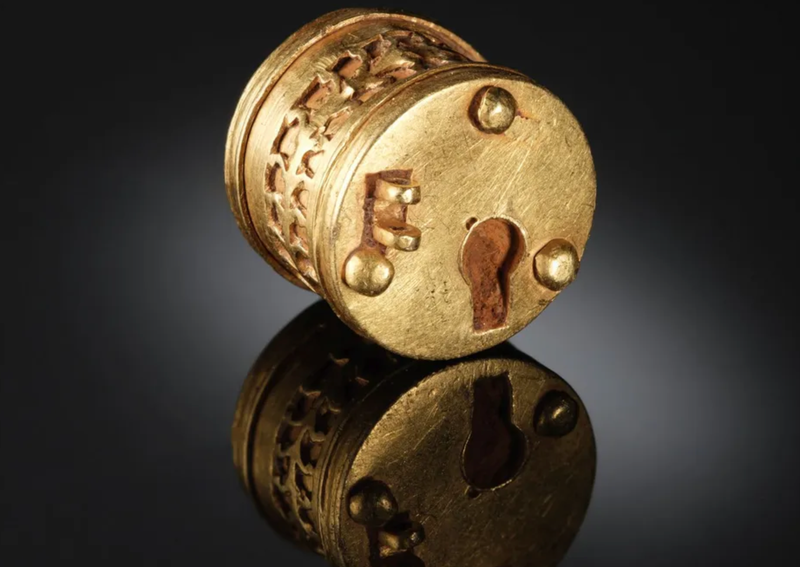Hoard of coins dating from Roman conquest of Britain found near Utrecht
Hoard of coins dating from Roman conquest of Britain found near Utrecht
Share:
Archaeologists celebrate very rare discovery of buried coins that suggest details of how military campaign was fought. A hoard of British coins bearing the inscription of King Cunobelin and found in a Dutch field have been identified to very likely be the spoils of war of a Roman soldier from the conquest of Britain.
![[Photo of bronze coin with a decorative horse on the back and the letters 'CUNO']](https://i.guim.co.uk/img/media/ce551eb9027a73bbd12c45762d856bbcd4f79703/0_855_3964_2378/master/3964.jpg?width=445&dpr=1&s=none&crop=none)
The 44 gold coins, known as staters, were discovered alongside 360 Roman coins, which are believed to have been given as military pay, by two amateur archaeologists with metal detectors in a field in Bunnik, near Utrecht. The staters bear the name of the British Celtic king also known as Cunobelinus, immortalised by Shakespeare as Cymbeline in the play of that name, who reigned between 5 and 40AD in the south-east of Britain.
Analysis of what is the first mixed composition collection found on mainland Europe suggests the coins were deliberately buried in a shallow pit and stored in a cloth or leather pouch. The coins, which were found at a depth of less than 30cm below the surface of the soil, are said to amount to 11 years in wages for an ordinary Roman soldier.
Four of the British staters are regarded as posthumous issues, probably struck by Cunobelinus’s successors as ruler of the Catuvellauni tribe, the brothers Togodumnus and Caratacus, at around 43AD. The wide chronological range of the coins suggests they were not selected based on quality, gold content or weight but removed from circulation in a single event, consistent with being spoils from the early Roman conquest of Britain under the general Aulus Plautius (43-47AD).






















